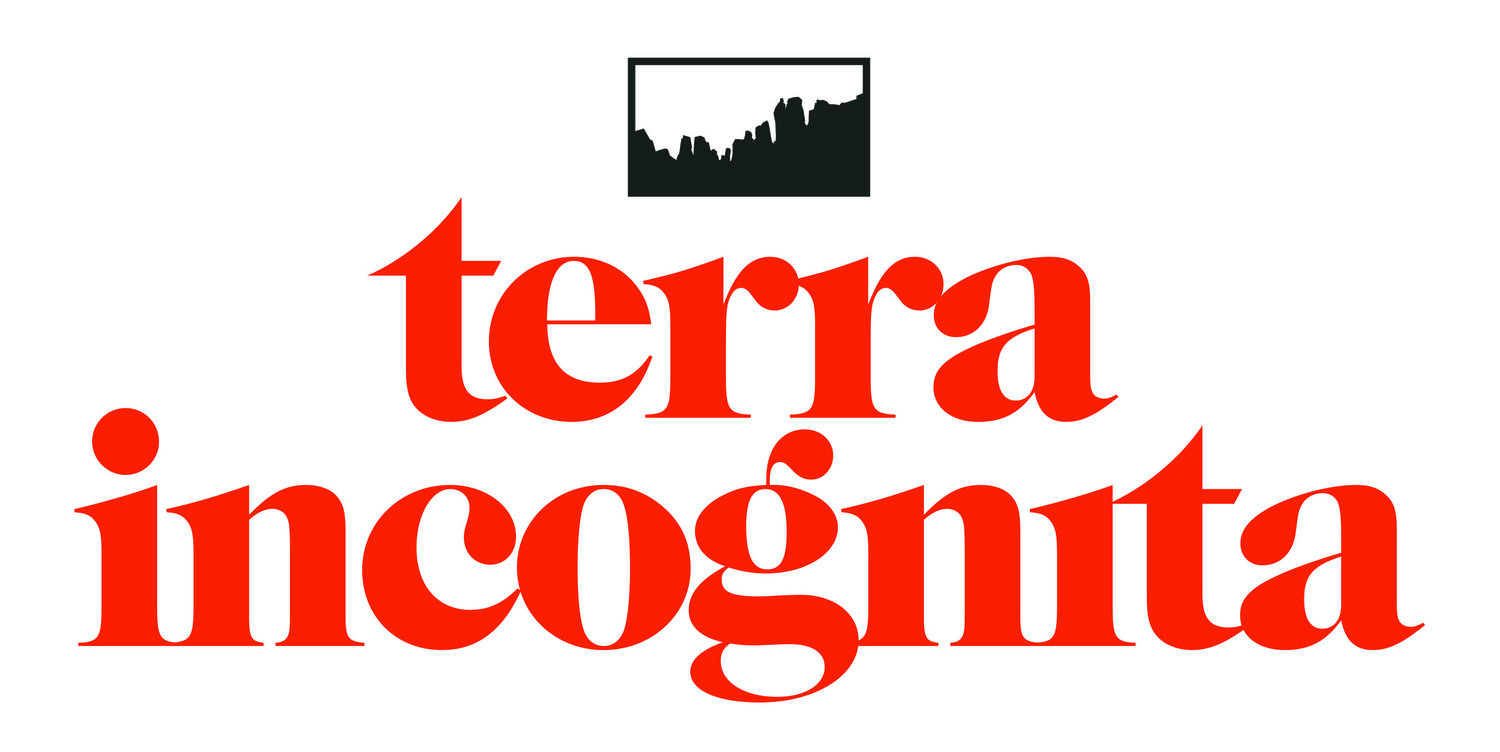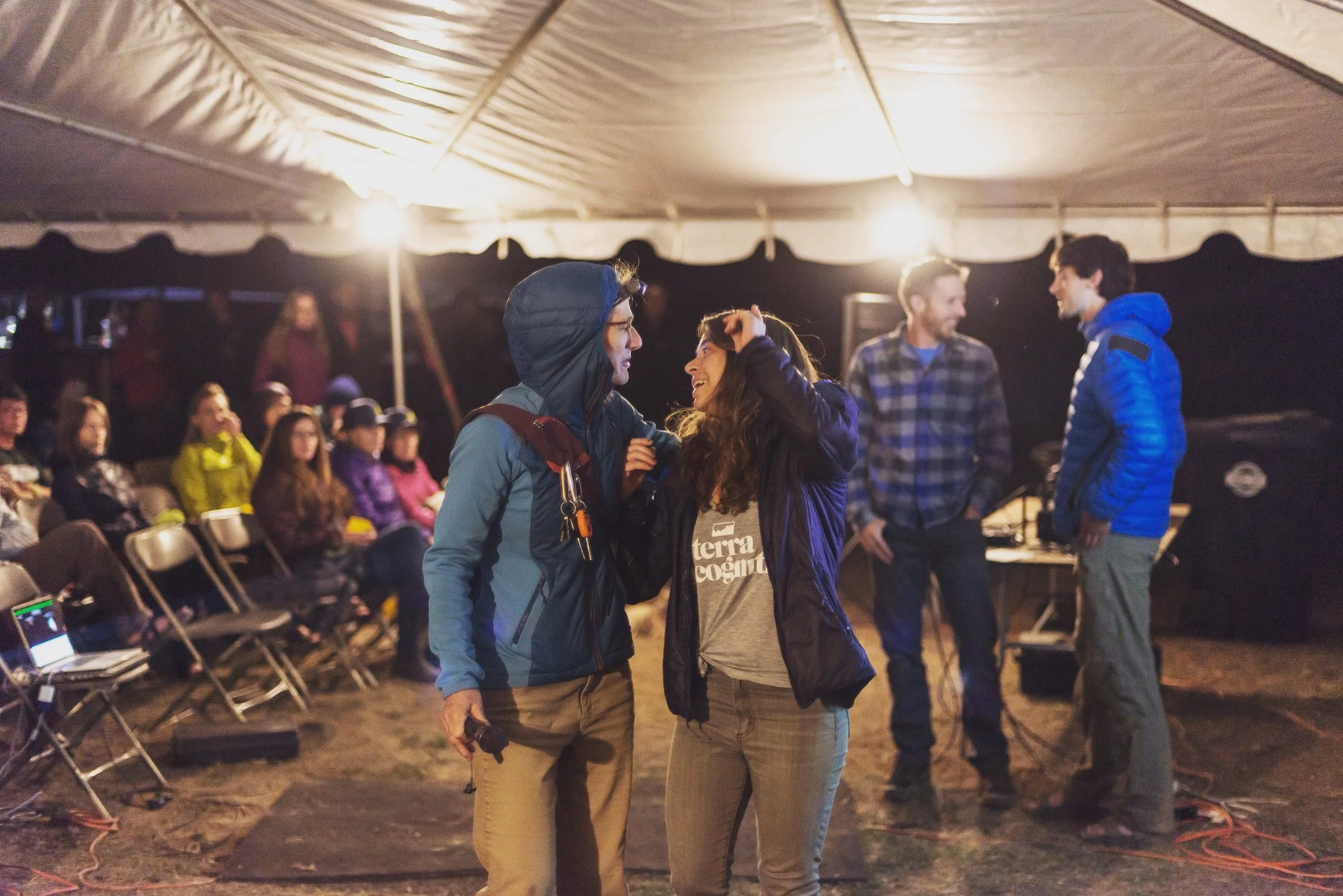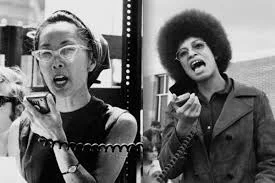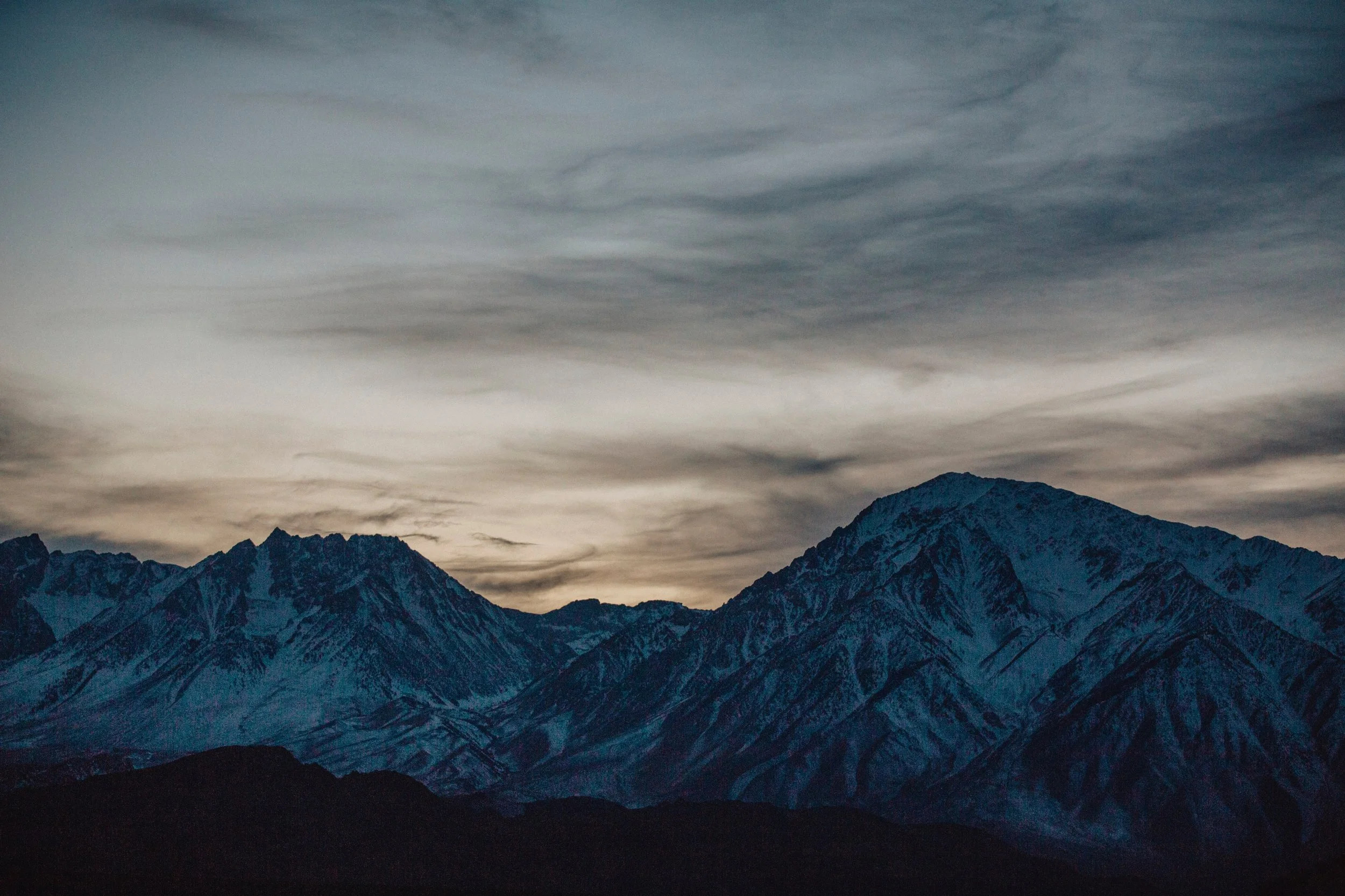Whiteness is upheld by all white people. White supremacy is ingrained in the founding of America. White people in America are settlers. White people wouldn't be in the positions they are in today had Indigenous peoples' not had their land stolen. We are existing on somebody else's stolen land. In terms of material goods, financial security, and ease of moving through the world, white people owe their claims to any of these things due to colonization. White people are the beneficiaries of the dispossession and continued elimination of Indigenous people. White people may be reluctant to this and they may not want to believe it. But it is true. So, how do we reconcile this?
Sexual Assault and Violence Across Industries, and The Inaction of "Good" Men
#metoo inundated social media this last October to “give people a sense of the magnitude of the problem,” as Alyssa Milano wrote on Twitter. However, as journalist Britni Danielle pointed out, activist Tarana Burke, a Black woman, began the crusade ten years ago, particularly for women of color. The viral phenomenon came as no surprise because the magnitude of the problem is not just known to those who speak out. It is a burden that all women carry. And while it is important and powerful for women to speak up about their experiences, this media frenzy has revealed yet again that our society only pays attention when abuse happens to cis, straight, white women. This outrage and backlash against Hollywood male elites, while necessary and important, is white outrage. The only reason why mainstream media put these stories in the spotlight is because abuse is only intolerable if the victim is white. We must acknowledge that violence against women is happening all of the time, across all industries, and that it affects women of color and Indigenous women the most.
Interrupting Oppression 101 Workshop
Instead of sitting at a table that we don’t even want to be a part of, we are creating something new.
Interview with Jolie Varela on Payahüünadü, "The Place of Flowing Water"
Entering her 30th thirtieth year, Jolie has now dedicated her life to the health of her people. Since going to Standing Rock to resist the North Dakota Pipeline, Jolie has sought ways to bring the momentum home to Payahüünadü. She has organized many events to spread awareness about the water war going on between Payahüünadü and Los Angeles. South of Lone Pine, California sits the dry Owens Lake, which once held significant water. In 1913, due to the water being diverted into the Los Angeles Aqueduct, as well as for the use of cattle ranching, the Owens Lake water levels dropped. Now, as of 2013, Owens Lake is the largest single source of dust pollution in the United States.[1] For NPR, Kirk Siegler reported, “…it’s a salt flat the size of San Francisco, and when the wind blows, it can churn up huge dust storms with high levels of particulates that are dangerous to breathe.”
Exploitation of Native Imagery For Profit
Walmart selling Native images on products is only one example of the continued exploitation of Native imagery and culture. As Native people, we see how Native imagery has been co-opted by non-Natives to secure their own agendas – whether it’s pushed by capitalism, being the white savior, cultural appropriation, or even furthering the acceptance of pan-indianism. The dehumanization of Native people runs deep through the veins of this country.
Walls Are Meant to Protest
The new North Face campaign that touts the slogan, “Walls Are Meant for Climbing,” brags about donating $1 million to building public climbing walls. This ignorant marketing is white-washing over the very serious, very real threat of building a wall to keep people out, which has led to an irrational fear and hatred for Mexican and POC communities.
Content Rummage: Editing for Privilege
At Terra Incognita Media we have made many mistakes that fall in the category of white feminism. We are here to call ourselves out and be an example of what not to do.
Why You Did Write About the Closure
"During the legal proceedings of Bear Lodge Multiple Use Association versus Babbitt (1998) - the lawsuit over the climbing management plan at Bear Lodge (aka Devils Tower National Monument) - the judge suggested to the Cheyenne River Sioux attorney that the tribes had bigger things to worry about than some people climbing some sacred rock. Such attitudes, unfortunately, continue to this day, and were evidenced in some of the discussions earlier this summer among climbers regarding the voluntary June closure. A few blog posts were particularly outrageous, and this essay is a response to some of the harmful rhetoric, assumptions, and erasure contained within those posts. Because when 'getting along' means continuing a status quo of white supremacy and the erasure of Native American beliefs, voices, and existence, we can't just all 'get along.'" - Anna Kramer
The Bears Ears: Cultural Appropriation in the Outdoor Industry and Why “Public” Lands Are Not Public
The fight to keep the Bears Ears a National Monument has the outdoor community clamoring to speak on why this place is “spiritual” to them, that it summons “out of body experiences and how their athleticism is “ritualistic.” The erasure of Native American culture in popular outdoor media is a part of the institutionalized racism and violence towards Native American communities. The outdoor community is perpetuating the oppression of Native American communities through cultural appropriation[1]; by climbing on sacred monuments for recreation or paid work, white-washing or completely erasing the history of the lands, and stealing elements of Native American culture for profit. In the outdoor community thee is cultural appropriation in written accounts like Morgan Sjogren’s, “Run to the Sunrise,” which is complete with a photo of Sjogren posing with a feather in her hair, a sacred ritual for many Native tribes.
People Who Make America Great for Everyone Part III
"A woman who writes has power, and a woman with power is feared." - Gloria Anzaldúa
People Who Make America Great for Everyone (Part II)
“You’ve got to rattle your cage door. You’ve got to let them know that you’re in there, and that you want out. Make noise. Cause trouble. You may not win right away, but you’ll sure have a lot more fun.” - Florynce Kennedy
People Who Make America Great for Everyone
"The woman you're becoming will cost you people, relationships, spaces, and material things. Choose her over everything." @Lisa Lamla
Cedar Wright’s Advice to Women: If You Want to be Taken Seriously as a Climber “Don’t Wear Booty Shorts!”
Wright dug himself a hole (without realizing it) on episode 106 of the Enormocast, a climbing podcast hosted by Chris Kalous. He tells women that if they want to be taken seriously as climbers that they shouldn’t wear booty shorts. This kind of humor deflects the real issue and reinforces rape culture. Blaming women for not being taken seriously because of their choice of clothing is akin to saying that a woman who was raped was asking for it. This places the blame on the victim. Without realizing it, Wright, through his language, has hit the nail on the head: we cement value to women based on what they wear. Women are held to value judgments solely based on their sex appeal through the white, hetero, cis male gaze.
All of the rhetorical aversions and desperate rationalizations that people often throw at women for standing up for their autonomous space gets exhausting. The industry is stagnate and slow to real change because the poster boys of climbing take up the majority of the space. The question is, are they willing to correct themselves and be advocates for women and minorities taking up more space? Thankfully, women like Kathy Karlo are here to re-write the narrative and create that space.
About Water
Activism is ramping up in the good-old-boy town of Bishop, California. "We are all water protectors,” Varela reminded the community at an event called, "About Water." The yoga studio was full of community members who gathered to support Jasmine Amara and Jen Fedrizzi during their inaugural event to raise awareness about water. “At this time it feels increasingly important for me to use art, music, and poetry as an avenue for healing, informing, and resisting,” reflects Amara on her personal website.Inspired by their relationship with water, and the knowledge that Los Angeles is draining the Owens Valley, Amara and Fedrizzi teamed up to create conversations about living harmoniously with our planet’s most precious life source. The work includes images from Payahüünadü, or the Owens Valley, which is one of L.A.’s main water sources today, as well as images of food trucks and concrete landscapes that contribute to water decimation.
Hell Hath No Fury: Reflections on That One Time Planet Granite Leadership Turned Me into a Scorned Woman
It was spring in Portland, Oregon, one year ago today. I had returned from Yosemite and the Creek. Once again, I was working part-time at Planet Granite. Conversations that had fallen short around the campfire lingered in my mind. “We’re just trying to drink whiskey and play cards, and you want to talk about feminism,” says my friend as we sit under a tarp structure that we had assembled in haste as the rain fell in Camp 4. The ratio is ten men and one woman. As the surrounding granite walls turn darker gray, as the Nose on El Capitan gets washed of all its dried shit and piss from climbers the day before, on a mission to nab their credibility in the history and glory that is Yosemite, we resolve to playing ukuleles, coming up with bad lyrics, singing out of tune, and instead of talking about that dirty -ism, we talk about why we shouldn’t. My friend is too busy preparing to climb the nose in a day to expend any energy thinking about such trivial matters.
Scorched Earth
The war on terror is not far away in the Middle East. It is right here, sitting with us right now. Occupy Wall Street, Black Lives Matter, Idle No More, Honor the Earth and movements like these keep me going. When someone says to me there’s no point, I think about Tawakul Karman, Aung San Suu Kyi, Angela Davis, Edward Snowden, bell hooks, Laura Poitras, Margaret Jacobsen, Diane Maxey, and my friend, Jolie Varela who lives here in Bishop, who is starting a cultural revitalization project here in the valley. It is time we connect on a deep, individual level with the people who we live among, the people who are sitting beside, and the people who are not here, who live off Barlow Lane, those who have ancestors resting under the dirt, largely unmarked, without tombstones, where often a dirtbiker will plow over their graves like its their God-given right.
White-Washed History, Radical Listening, and Turning Dialogue into Action
In Bishop, California it is too clear how segregation is still alive and well between white people and the Paiute tribe.
Economic Refugees
Gentrification is modern colonialism – whiteness benefits from it, and even “the aesthetic and cultural aspects of the process assert a white Anglo appropriation of urban space and urban history,” reveals Rowland Atkinson and Gary Bridge in their book, Gentrification in a Global Context: The New Urban Colonialism. Our American society has short-term memory loss. Often, we forget the greatly destructive implications and lasting consequences of “old world” conquests. Why do we glorify Alex Honnold for living out of his car, and ignore those who do it out of necessity?
Blood Memory
When I was twenty-six, I went to Jackson Hole, Wyoming to meet my then boyfriend's family. I think after that I knew that we could never work. It's not that his family wasn't welcoming, they were fine. We watched slide shows of his family vacations to Mexico, bike rides through the Grand Canyon, and holidays at their home in Mt. Hood.
Ten Ways REI Could Make Systemic Change and Actually Empower Women to be Forces of Nature
1. Give gear and clothes to the houseless
2. Acknowledge feminism, the intricacies of the feminist movement and its history, and that feminism is the driving force of true women and minority empowerment
2. Support and sell books by authors of color who talk about the systemic issues related to getting outside: Jourdan Imani Keith, Ta-Nehisi Coates, Angela Davis, bell hooks, Lauret Savoy, Carolyn Finney, James E. Mills, Dianne D. Glave, Camille T. Dungy, Dorceta E. Taylor, Alison Hawthorne




















